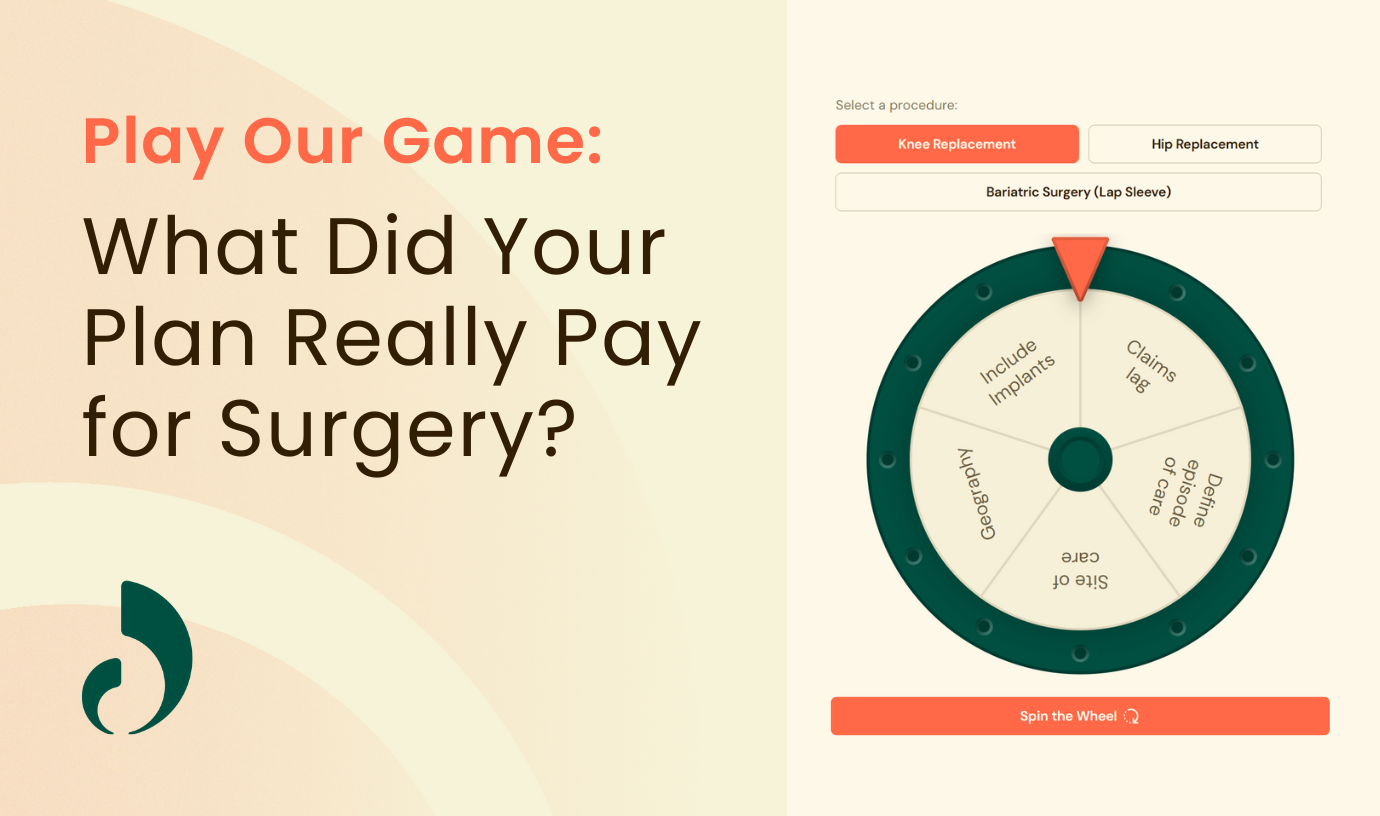AI alone can’t tell you whether a surgeon is the right one for you. Only people can do that.
Although there are websites and apps focused on automatically sorting and ranking facilities, and even the surgeons that operate at those facilities, at Lantern, we believe that accomplishing this requires more than an algorithm or claims analysis—it needs and deserves a truly personal approach. There’s simply no rating system that has successfully defined the “best” surgeon for your specific needs that makes sense, is easily accessible for the average person, and is defensible when it comes to something so important.
Our Interview Process
Since quality is not a black-and-white metric, we interview every single surgeon who is a candidate for our network. Our goal is not to rate the best surgeons—and frankly, we disagree with the misnomer that most surgeons are not excellent. Rather, it’s to eliminate the ones who don’t meet the strict standards we developed in collaboration with our Medical Advisory Board, comprised of phenomenal surgeons operating both in the community and at the largest teaching institutions in the country. We firmly believe there is no person or machine better equipped to identify outstanding surgeons than outstanding surgeons themselves.
Our network interview process is designed to give us a feel for how surgeons treat their patients, from how they decide who is a good candidate for surgery to how they determine the site of care.
For example, uncontrolled diabetes is a significant risk factor to consider before performing an elective surgical procedure. How does the surgeon factor in disease management when evaluating whether someone is a good candidate for surgery? The same goes for people who are active smokers. Will the surgeon operate anyway, knowing nicotine use is a risk factor for serious complications? If they do, that’s not someone we want in our network.
We ask about their perspective on patient screening to determine whether a procedure should be performed inpatient at a hospital. What makes a person safe to be discharged the same day from a hospital? What makes a patient an optimal candidate for surgery at an ambulatory surgery center? We seek to get a deep understanding of each practice’s site-of-care protocols and commitment to patient comfort and recovery.
At the center of it all, we want to ensure that each surgeon takes an approach that they know is best for the patient, whether that be surgical intervention or more conservative pathways. What we have learned is that great surgeons know who not to operate on, and when the best option is surgery, they have the programs and protocols in place to optimize those outcomes.
There’s no algorithm out there that can give us these insights. We have to talk to the surgeons, and they need to talk to us. I firmly believe that a partnership approach is what has been missing in the healthcare space. I want to have the cell phone number of our surgeons, and they should have mine, because it is collaboration and open communication that will enable better outcomes for patients, something we, and our surgeon partners care deeply about.
Additional Evaluation
There are plenty of quality factors we can determine without a conversation, too. A lot of the people I talk to are surprised to learn that many of the surgeons we review in a given market aren’t board-certified. Surgery can be complex, but it is unquestionably a stressful moment in a person’s life, regardless of the complexity in the eyes of the medical community. As such, you want the specialist best trained and suited for your specific needs. So we can’t be focused on generalists—we have to engage with specialists.
We also look at procedure volume. How many times a year does that surgeon perform a knee replacement? If it’s once a month, that’s not often enough to recognize and adapt to unique circumstances that present themselves during a given surgical procedure. That surgeon also is not likely to identify a patient who is not a good surgical candidate.
The effectiveness of our review process bears out in the results our members experience: our surgeons have a less than 1% complication rate, compared with the industry averages multiples higher. And just as importantly, our surgeons recommend against surgery 20-30% of the time. They’re not choosing to operate on just anyone who walks in the door.
Our Surgeons Love Our Approach
If this sounds like a lot of review for surgeons to go through, it is. Many have told me this rigorous, hands-on approach is not scalable—and they are correct. But we do not need to be scalable; we need to be highly selective and accessible. Our members don’t need a list of 100 surgeons to choose from. They need help finding the one or two near them who can perform the surgery they need extremely well.
The surgeons who meet our network standards love our rigor. They’ve entered medicine to improve lives and outcomes, and they want to be part of a tight-knit group of surgeons who share a similar focus on the patient experience and outcomes. They’re also the biggest referral source for growing our network because great surgeons know other great surgeons.
At Lantern, we don’t take our commitment to improving outcomes, cost and convenience lightly. Our concierge-level service, lower complication rates, and better surgical outcomes start with the right surgeons. By assembling a network of surgeons who share our commitment, we are setting a new standard of care.




